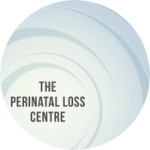Providing support following a miscarriage – Information for therapists
One in 4 or 5 pregnancies end in miscarriage. If you are a therapist who works with women and couples in the childbearing years, miscarriage is likely to be encountered by some of your client population.
Miscarriage refers to the loss of a pregnancy prior to 20 weeks gestation. “Early miscarriage” is commonly seen as being prior to 12 weeks gestation and “late miscarriage” between 12 and 20 weeks gestation. The loss of a baby of 20+ weeks gestation is considered a stillbirth or neonatal death.
There are different kinds of miscarriage, and every person’s experience of miscarriage (both physically and emotionally) is unique. Depending on gestation and the baby’s condition, the baby may have been birthed, seen and held.
What therapists need to know
- Miscarriage is more than the loss of a pregnancy. It is the loss of a baby. Typically (for people who have planned a pregnancy), the loss of their baby represents the loss of hopes, dreams and plans for the future. Your clients may have begun to bond with their unborn baby early in pregnancy. They may have been dreaming about their future family well before the pregnancy. They may (or may not) have shared their happy news with friends and/or family.
- Clients may have taken a long time to fall pregnant, or may have gone through assisted reproduction (e.g. IVF) which can have been a long and arduous journey in itself.
- The experience of miscarriage can be traumatic.
- When miscarriage occurs (especially multiple miscarriages), clients may feel like they have failed. They may fear being unable to have a baby. They may feel the pressure of age/time.
- Clients are likely to have no explanation for the cause of their miscarriage.
- Some clients’ friends and families may not yet be aware of the pregnancy. Even when aware of the pregnancy, the grief associated with miscarriage can be poorly understood by family and friends. As a result, people who experience miscarriage often feel alone and unsupported in their grief.
- The experience of loss can exacerbate anxiety in subsequent pregnancies.
- The experience of loss can bring up past experiences and trigger other mental health challenges.
Supporting clients through miscarriage
When working with perinatal clients, it is important to understand
- The meaning of the pregnancy for the individual client
- The unique experience of the loss (both physically and emotionally)
- The impact of the client’s conception history
- The client’s attachment (bond) to their baby
- The social and cultural context within which the loss occurred
- The client’s past and current mental health difficulties, including issues of risk
Most importantly, therapy support involves listening and validating the feelings of grief and loss; providing a holding environment in which all thoughts and feelings can be expressed. Although there are no particular interventions prescribed for grief counselling, you may draw upon a number of therapeutic approaches. In therapy, clients may look to you for the following:
- To be fully heard
- To have their grief symptoms and trajectory of their grief normalised
- To debrief their experience of loss
- To discuss their feelings around the support or lack of support of family and friends
- To managing fear and anxiety relating conceiving again and future pregnancies
- Help with disentangling unhelpful beliefs and narratives
- Self-care
- Therapy for past and/or concurrent issues that have affected the client’s life (that may have been triggered by the loss)
- Help with finding support groups
Therapist training in perinatal loss
Online course: “Perinatal Loss in Practice: What Therapists Need to Know”
Delivered by Dr Renée Miller, Perinatal Clinical Psychologist, The Perinatal Loss Centre
COPE accredited training program (6 hours)
What you will learn:
- Understand the different types of losses and the psychosocial consequences of perinatal loss – from pre-conception through the postnatal period and beyond.
- Conceptualize childbearing as an adult developmental stage (self-narratives, meaning, social, and cultural contexts).
- Understand grief, loss, and adaptation to loss, as a function of attachment.
- Become informed about grief theories.
- Discern the typical grief trajectory from complicated grief.
- Understand perinatal loss within the biopsychosocial model of perinatal mental health.
- Use frameworks for assisting clients in adjusting to loss through fertility. challenges, subsequent pregnancies, and parenting after loss.
- Apply therapeutic approaches to counselling clients who have experienced perinatal loss.
For more information: www.theperinatallosscentre.com.au/online-training
 This information was developed in partnership with the Perinatal Loss Centre.
This information was developed in partnership with the Perinatal Loss Centre.
The Perinatal Loss Centre provides support to health professionals and families affected by the death of babies.
For more information, visit their website here
